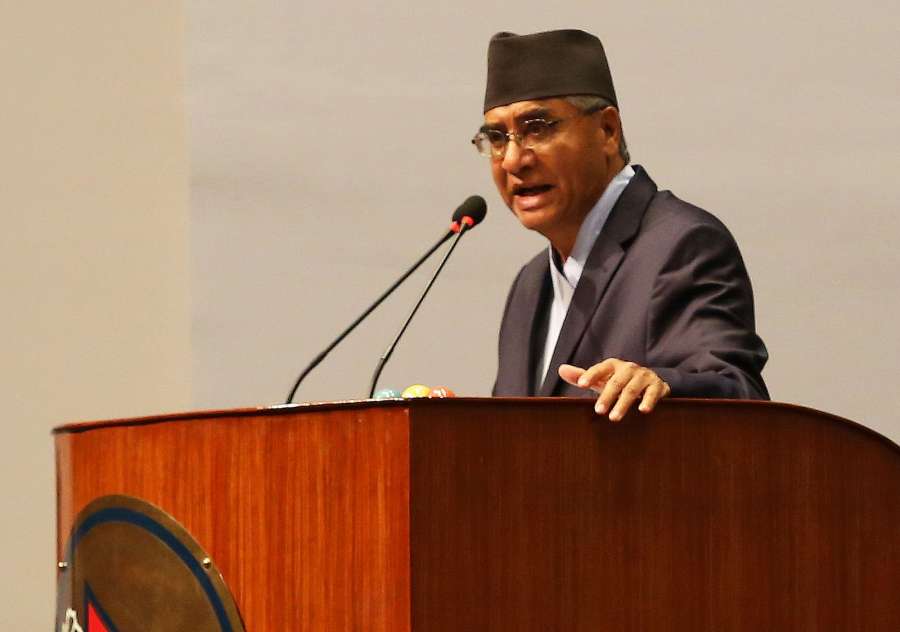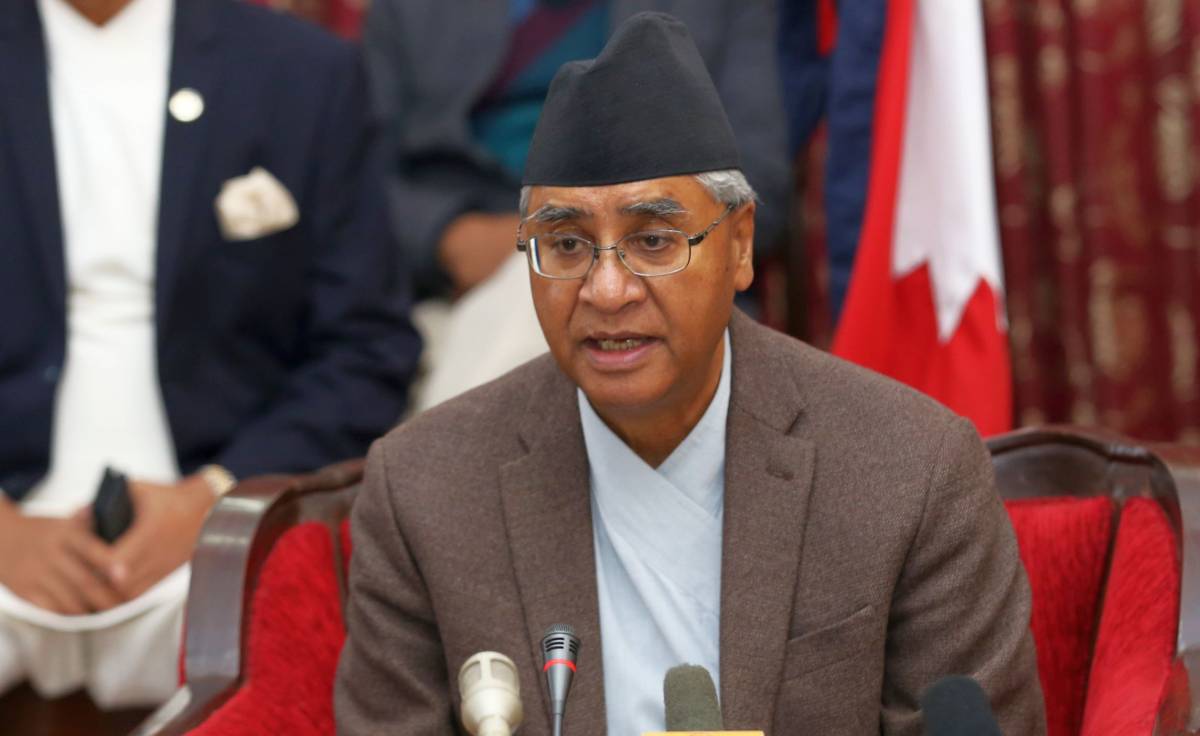As per the Constitutional provisions, he can’t expand the Cabinet beyond 25 members…reports Asian Lite News
One week after he was sworn-in as the Prime Minister of Nepal, Sher Bahadur Deuba, who’s also the President of Nepali Congress, has failed to give full shape to his Cabinet.
Deuba, who was backed by his own party Nepali Congress, Nepal Communist Party (Maoist Centre), Janata Samajbadi Party, Janamorcha Nepal, 22 lawmakers belonging to the opposition, and Nepal Communist Party-UML, is struggling to expand his five-member Cabinet.
On July 13, Deuba, after being sworn-in as the Prime Minister, had formed a five-member Cabinet. Now there is pressure on him to expand it, but due to large number of aspirants for ministerial posts, he is increasingly feeling the heat and struggling to decide whom to accommodate and whom to not.
As per the Constitutional provisions, he can’t expand the Cabinet beyond 25 members.
The Maoist Centre, a key alliance of Nepali Congress, on Wednesday decided to chart out a common minimum programme and policy between the alliance partners to successfully run the government.
A task force of the alliance partners will chart out such common minimum programmes and policies, party spokesperson Narayan Kaji Shrestha said.
“The Standing Committee meeting of the party didn’t discuss joining the Deuba government. We will discuss with the other alliance partners before joining the government,” said Shrestha.
Another alliance, Janata Samajbadi Party (JSP), is a divided house. The party is divided into two factions, one led by Upendra Yadav and another by Mahantha Thakur. Known as the Madhesi party, the JSP has 32 lawmakers in the 275-member House.
Earlier, the Thakur faction had secured the majority and joined the KP Sharma Oli government while the Yadav faction stayed in the opposition. After Oli’s government was toppled by the Supreme Court and Deuba became the Prime Minister after court overturned Oli’s decision to dissolve the house on May 21, the Yadav faction became stronger and secured the majority inside the party after several lawmakers switched sides.
After the Thakur faction joined the previous Oli government, the warring factions of the party had approached the Election Commission claiming authenticity. The case is under consideration of the poll panel.
After Deuba sought a vote of confidence on Sunday, the Thakur faction plunged into minority and decided to vote for Deuba. On Wednesday, Deuba met Thakur and discussed the party’s demand, including joining the government, but no progress has been made in this front so far.
“We will join the government only after the Election Commission decides the authenticity row of our party,” senior JSP leader Sharat Singh Bhandari said.

ALSO READ: Deuba wins vote of confidence in Nepal Parliament
As the Maoist Centre and the JSP are clearly embroiled in internal disputes, there is also a crisis inside Deuba’s own party. The Nepali Congress too is a divided house as several leaders are vying to join his Cabinet. His rival faction within the party led by Ram Chandra Poudel has demanded one Deputy Prime Minister’s post and two ministerial berths in Deuba’s Cabinet.
Another faction led by Krishna Prasad Situala is demanding at least one ministerial post in the Cabinet. Deuba had appointed two ministers earlier from his own camp and now he has to settle the anguish within his party at the time of Cabinet expansion.
Another roadblock for Deuba for Cabinet expansion is the tussle and division in the main opposition party, UML, where its 22 lawmakers did a mutiny and voted for Deuba on Sunday.
The party whip doesn’t work for any lawmaker if he/she votes for the Prime Ministerial candidate to be elected under Article 76-5 of the Constitution.
And the UML is in deep trouble for one year due to the highhandedness of outgoing Prime Minister Oli. Oli is challenged by former Prime Minister, Madhav Kumar Nepal. Those voted in favour of Deuba on Sunday were the lawmakers from the Nepal camp.
Though the party is not divided yet, there is serious division, discord and distrust between Oli and Nepal. Oli, who is the chairman of the party, on Wednesday sought clarification from all 22 lawmakers who voted for Deuba and warned that they will be removed from the party if their clarifications fail to satisfy the party leadership.
But the Nepal faction has opposed the action, saying that due to the atrocities committed by Oli inside the party, they were forced to vote for Deuba.
If party unity between Oli and Nepal factions does not work, the Nepal camp may join the government, though nothing has been decided yet.
“The way the Oli faction sought clarification from 22 lawmakers, it will hamper the party unity process. Such activities don’t help the party unity process,” senior UML leader Raghuji Pant said.
If the unity process between Oli and Nepal fails, the largest party in Nepal’s Parliament, UML, which has 127 lawmakers, will split.

Leave a Reply